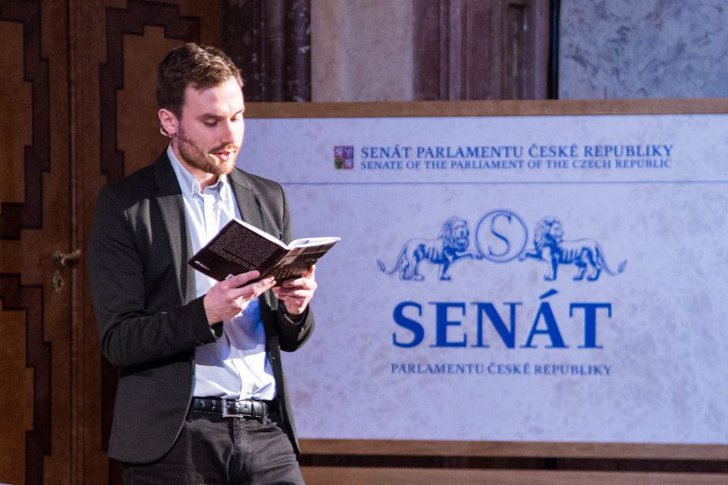The history of the festival began in the late seventies in London, when future Prague Writers’ Festival director Michael March began to host international poetry readings at Keats House with the support of the magazine Index on Censorship. These readings featured authors from Central and Eastern Europe, as allowed by Helsinki Accords. Following the fall of the Berlin Wall and the Velvet Revolution in Czechoslovakia (both events took place in 1989), March relocated the readings to Prague. That’s how the Prague Writers’ Festival was born. Originally, it was a part of the International Book Fair, but from 1996 onward the PWF is a standalone event.
The main goals of the Prague Writers’ Festival are to contribute to the development of world literature and to introduce the Czech audience to foreign novelists, poets and playwrights who are little known in the Czech Republic (including the Booker Prize, Pulitzer Prize and Nobel Prize laureates). Each year, the festival features world renowned authors. Previous guests include John Banville (Ireland), Salman Rushdie (the United Kingdom), Lawrence Ferlinghetti (the United States), Irvine Welsh (Scotland), William Styron (the United States), Nadine Gordimer (South Africa), and others.
Each year, the board announces a new theme of the festival. For example, the 2016 theme was Crime and Punishment. The program of the Prague Writers’ Festival is very rich, it includes meetings with authors, discussions and debates, presentations of new books, readings, receptions, writers parties, author’s evenings, theater performances, opening and closing gala evenings, and other events. At the closing gala evening, the Spiros Vergos Prize for Freedom of Expression is awarded.
Spiros Vergos was a Greek poet, diplomat and journalist who was forced to flee his home country in 1967 following the coup and the establishment of the military junta. Vergos was a great friend of the PWF and even served as the festival director in 2005. He died in Prague in 2007. The Spiros Vargos Prize was established in 2008 to honor his memory. The first recipient was Russian poet, translator and civil rights activist Natalya Gorbanevskaya who participated in the 1968 Red Square demonstration against the Soviet invasion of Czechoslovakia.

Photo: pwf.cz




